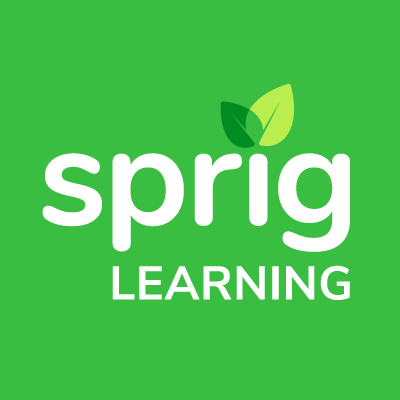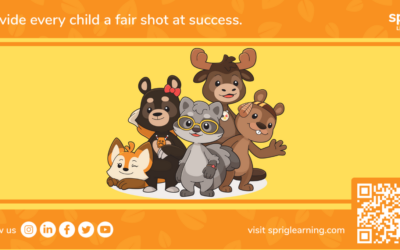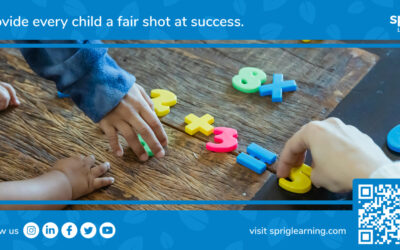The Sprig Learning Bookshelf was built in partnership with Mi’kmaw Kina’matenwey of Nova Scotia, and provides Indigenous and non-indigenous students with access to guided reading in both the English and Mi’kmaw language. It provides early literacy support through levelled readers, and a variety of interactive features.
As an extension of the Sprig Learning Oral Language Program, the Sprig Bookshelf brings the stories of the Mi’kmaw people in Nova Scotia to life and provides access to parents, caregivers, and educators looking to extend learning beyond the classroom. Readers can choose to either read alone, or have the story read to them in either English or Mi’kmaw.
Beyond early literacy, the Sprig Learning Bookshelf acts as a tool for language revitalization among the Mi’kmaw community in Nova Scotia. Each of the four titles currently featured in the bookshelf was created in partnership with a working group of educators, community members, and Elders to represent the localized experience and culture of Mi’kmaw students. Speakers and non-speakers alike can see the Mi’kmaw language come to life, and promote language adoption and retention among some of their youngest speakers.
Download The Sprig Learning Bookshelf for free on the iOS app store for iPad Air today.
More from the Sprig Blog
Elsapet the Puppet Makes Her Grand Debut, Spreading Language, Love & Autism Acceptance on World Autism Day
A new voice is joining the conversation on language, culture, and inclusion! Elsapet, a lovable puppet with a heart for connection, makes her official debut on April 2, World Autism Day.
Holistic Assessment in Early Math
To design holistic assessment for early math, it’s crucial to grasp its essence and application in educational contexts. This article explores the concept of holistic assessment, its alignment with early math education, and the types of knowledge it evaluates.
Let’s start with an understanding about how holistic assessment works in early math.
3 More Common Situations in Early Literacy Leadership and How to Respond
In a recent article, Sprig brings attention to crucial aspects of early literacy leadership with “11 Common Situations in Early Literacy and How to Respond”.
It’s a must-read, if you haven’t done so already. Going beyond case studies and researched best practices, Sprig revisits previous blogs, extracting valuable insights that can pose challenging situations to early literacy leaders and presents their corresponding responses.
As discussed, those initial 11 scenarios were not exhaustive by any means, and so Sprig expands the discourse in this article by introducing three additional common situations faced by early literacy leadership.




